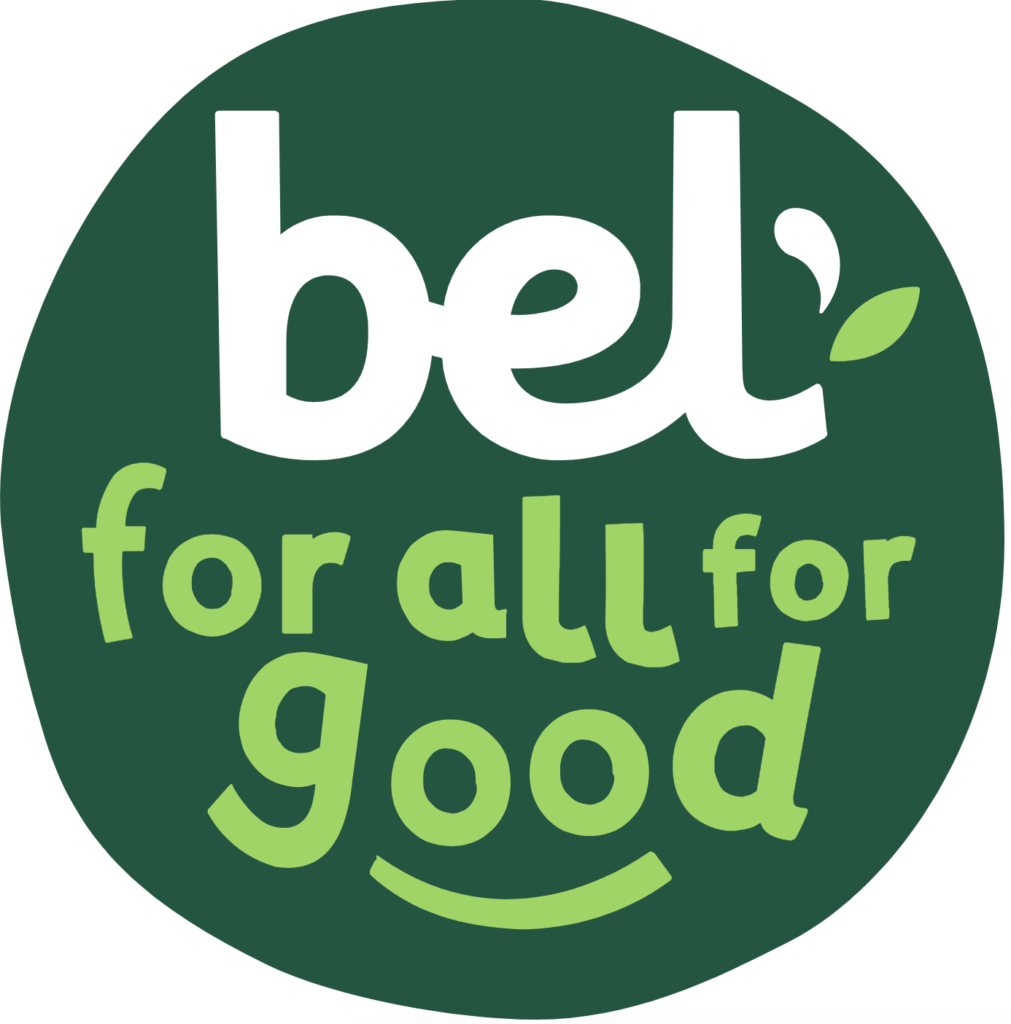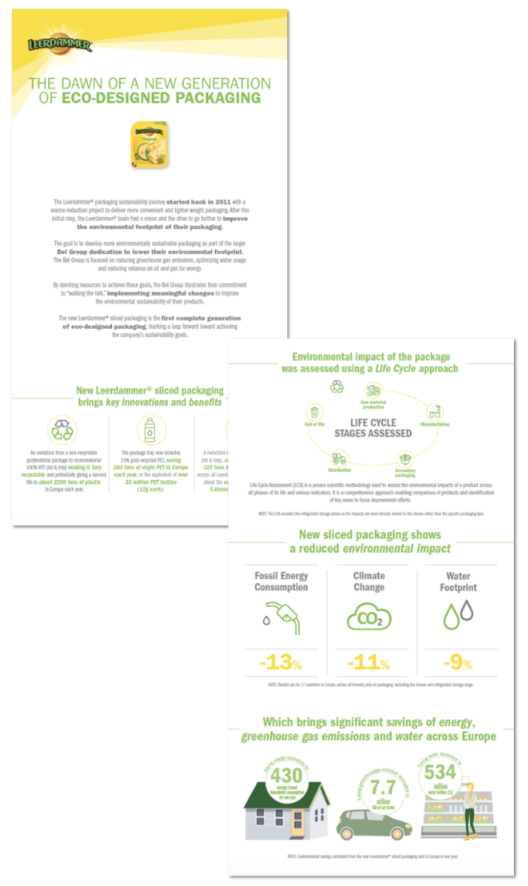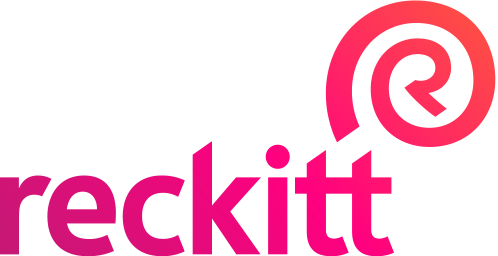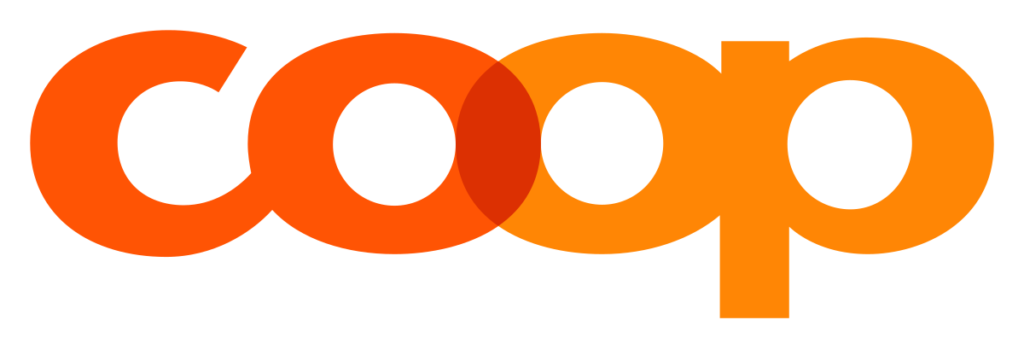Using metrics to tell the story of packaging improvements to two different audiences: customers and consumers.

Bel Group’s brand Leerdammer, the second largest global sliced cheese brand, has been working for several years on making their packaging more sustainable. As part of this effort, the R&D team has worked to reduce the amount of plastic used, use more post-recycled PET, and make the packaging fully recyclable.

Objective
- Provide a clear example of the progress Bel is making on its sustainability journey and specifically on packaging eco-design work.
- Raise awareness on the environmental impacts of packaging and the benefits of circular design, including resources saved and waste reduction.
- Reinforce a positive brand perception of Leerdammer.
Audiences
- For Infographic A: Customers (retailers) and other professional stakeholders
- For Infographic B: Consumers and brand teams
Quantis’ Solutions
- Transform a technical report and scientific findings into a meaningful, relevant topline communication, using equivalencies and design to bring it to life.
- Lead the creative development process by aligning the creative brief with project objectives and target audience needs.
- Develop two infographics to share Leerdammer’s sustainable packaging story and environmental benefits of eco-designed packaging with different audiences.
Leerdammer infographics
Inforgraphic A

Infographic B

“Quantis helped us build robust data on the sustainable performance of the new Leerdammer recyclable packaging and then translate that into relevant messages for our consumers. It's always a pleasure to work with this team!”
Simon Bonnet, Sustainable Brands Transformation Manager
Bel Group
Latest case studies

Case Study
Societe Generale
Societe Generale partnered with Quantis to assess and manage nature impacts, enhance portfolio strategy, and drive sustainable client engagement.

Case Study
Reckitt
Reckitt, with Quantis and CO2 AI, used AI and data to pinpoint and reduce Scope 3 emissions, improving footprint accuracy.

Case Study
Coop Group
Coop Group, with Quantis, created science-based targets and roadmaps, aligning climate strategy across seven business units.
